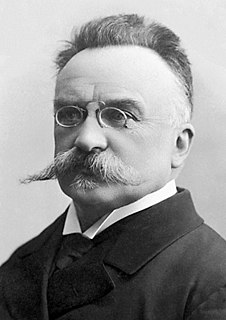A Quote by Mario Vargas Llosa
Related Quotes
There are two generic and invariable features that characterize utopias. One is the content: the authors of utopias paint what they consider to be ideal societies; translating this into the language of mathematics, we might say that utopias bear a + sign. The other feature, organically growing out of the content, is to be found in the form: a utopia is always static; it is always descriptive and has no, of almost no, plot dynamics.
It is true that I am not one of those who laugh at utopias. The utopia of today can become the reality of tomorrow. Utopias are conceived by optimistic logic which regards constant social and political progress as the ultimate goal of human endeavor; pessimism would plunge a hopeless mankind into a fresh cataclysm.
...if the fear of falling into error is the source of a mistrust in Science, which in the absence of any such misgivings gets on with the work itself and actually does know, it is difficult to see why, conversely, a mistrust should not be placed in this mistrust, and why we should not be concerned that this fear of erring is itself the very error.
We must dissent from the indifference. We must dissent from the apathy. We must dissent from the fear, the hatred and the mistrust. We must dissent from a nation that has buried its head in the sand, waiting in vain for the needs of its poor, its elderly, and its sick to disappear and just blow away. We must dissent from a government that has left its young without jobs, education or hope. We must dissent from the poverty of vision and the absence of moral leadership. We must dissent because America can do better, because America has no choice but to do better.
I wish I could say that racism and prejudice were only distant memories... We must dissent from the indifference. We must dissent from the apathy. We must dissent from the fear, the hatred and the mistrust... We must dissent because America can do better, because America has no choice but to do better.






































